What is Paid Media Campaigns (PPC)?
Have a Glance
What is PPC (pay-per-click) Marketing?Ajit: +91 9820621021
Pay-per-click marketing is a way of using search engine advertising to generate clicks to your website, rather than “earning” those clicks organically.
1. What is PPC?
PPC stands for pay-per-click, a model of Internet Marketing in which advertisers pay a fee each time one of their ads is clicked. Essentially, it’s a way of buying visits to your site, rather than attempting to “Earn” those visits organically.
Search engine advertising is one of the most popular forms of PPC. It allows advertisers to bid for ad placement in a search engine's sponsored links when someone searches on a keyword that is related to their business offering. For example, if we bid on the keyword “PPC software,” our ad might show up in the very top spot on the Google results page.
Every time our ad is clicked, sending a visitor to our website, we have to pay the search engine a small fee. When PPC is working correctly, the fee is trivial, because the visit is worth more than what you pay for it. In other words, if we pay $3 for a click, but the click results in a $300 sale, then we’ve made a hefty profit.
Here’s how it works: Every time your ad is clicked, sending a visitor to your website, you pay the search engine a small fee. (That’s why it’s called “pay per click.”) When your PPC campaign is well-designed and running smoothly, that fee will be trivial, because the visit is worth more to your business than what you pay for it. For example, if you pay $10 for a click, but the click results in a $300 sale, then using PPC is a no-brainer.
2. What is Google Ads?
Google AdWords is the absolute most famous Pay-Per-Click Advertising framework. It empowers organizations to make advertisements that show up on Google’s SERPs and other Google properties. AdWords works on a PPC model, in which clients bid for the keywords that suit their businesses and pay for each click on their promotions.
Google Ads operates on a pay-per-click model, in which users bid on keywords and pay for each click on their advertisements. Every time a search is initiated, Google digs into the pool of Ads advertisers and chooses a set of winners to appear in the valuable ad space on its search results page. The “winners” are chosen based on a combination of factors, including the quality and relevance of their keywords and ad campaigns, as well as the size of their keyword bids.
Every time a search is initiated, Google digs into the pool of bidding advertisers and chooses a set of winners to appear in the ad space on its search results page. The “winners” are chosen based on a combination of factors, including the quality and relevance of their keywords and ad text, as well as the size of their keyword bids. For example, if moPharma bid on the keyword “PPC software,” our ad might show up in the very top spot on the Google results page.
Conducting PPC marketing through Google Ads is particularly valuable because, as the most popular search engine, Google gets massive amounts of traffic and therefore delivers the most impressions and clicks to your ads. How often your PPC ads appear depends on which keywords and match types you select. While a number of factors determine how successful your PPC advertising campaign will be, you can achieve a lot by focusing on:
1. Keyword Relevance – Crafting relevant PPC keyword lists, tight keyword groups, and proper ad text.
2. Landing Page Quality – Creating optimized landing pages with persuasive, relevant content and a clear call-to-action, tailored to specific search queries.
3. Quality Score – Quality Score is Google's rating of the quality and relevance of your keywords, landing pages, and PPC campaigns. Advertisers with better Quality Scores get more ad clicks at lower costs.
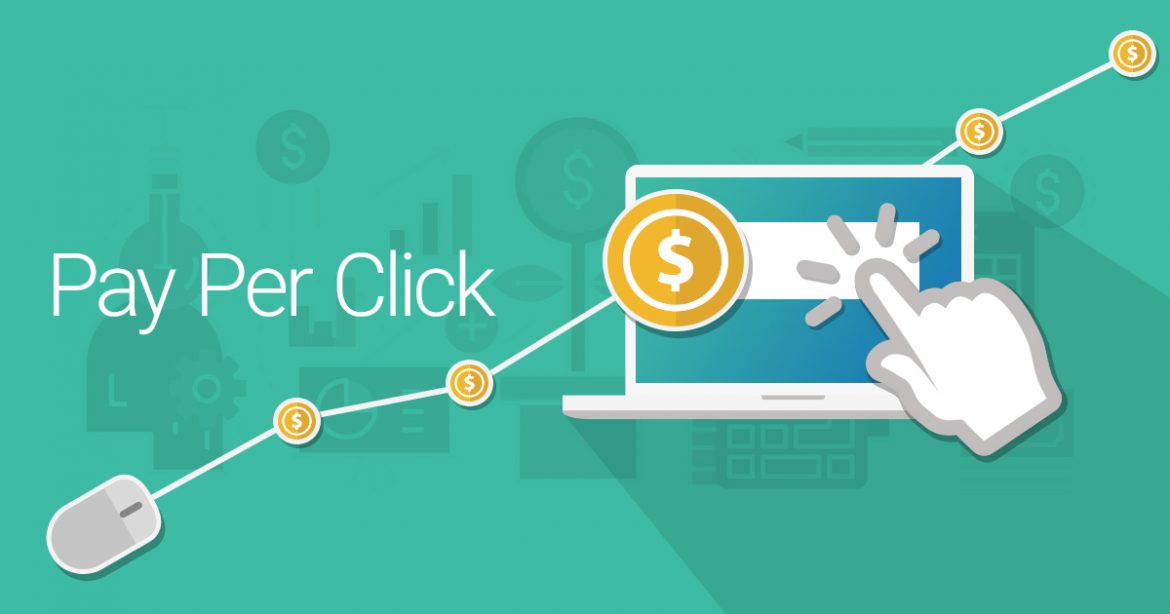
3. PPC Keyword Research
Understanding ‘What is PPC’ is not a cakewalk! PPC Keyword research can be a tedious task; however, it is likewise critical too. Your whole Pay per Click Campaign is worked around keywords, and the best AdWords promoters consistently develop and refine their PPC keyword list.
On the off chance that you just do your PPC keyword research only once, at the time you make your first campaign, you are presumably missing a great opportunity for countless profitable, low-cost, long-tail, and exceedingly pertinent keywords that could direct people to your site and increase your website traffic quite considerably. A powerful PPC Keyword run down ought to be:
An effective PPC keyword list should be:
1. Relevant: – Obviously, you would never prefer to pay for Web movement that has nothing to do with your business. You need to discover well-targeted keywords that will prompt a higher PPC CTR, successful cost per click and expanded benefits. That implies the keywords you offered ought to be firmly identified with the services and products you offer.
2. Exhaustive: - Your keyword research ought to incorporate not just the most prominent and regularly searched terms in your speciality, but also the long tail of searches. These long-tail keywords are more particular and they effectively represent the greater part of search traffic. Long tail keywords are less competitive as well and accordingly more affordable.
3. Expansive: - Pay per Click Marketing is iterative and you need to always refine and extend your campaign and make a situation in which your keyword rundown is continually developing and adjusting.
Your PPC Keyword research ought to likewise incorporate negative keyword discovery, as negative keywords prevent your ads from appearing for irrelevant searches. They eliminate the searches that are not important to your business and are probably not going to convert.
4. Managing Your PPC Campaigns
Once you've created your new campaigns, you’ll need to manage them regularly to make sure they continue to be effective. In fact, regular account activity is one of the best predictors of account success.
1. Add PPC Keywords: – Expand the reach of your PPC campaigns by adding keywords that are relevant to your business.
2. Add Negative Keywords: - Add non-converting terms as negative keywords to improve campaign relevancy and reduce wasted spend.
3. Split Ad Groups: - Improve click-through rate (CTR) and Quality Score by splitting up your ad groups into smaller, more relevant ad groups, which help you create more targeted ad text and landing pages.
4. Review Costly PPC Keywords: - Review expensive, under-performing keywords and shut them off if necessary.
5. Refine Landing Pages: - Modify the content and calls-to-action (CTAs) of your landing pages to align with individual search queries in order to boost conversion rates. Don’t send all your traffic to the same page.
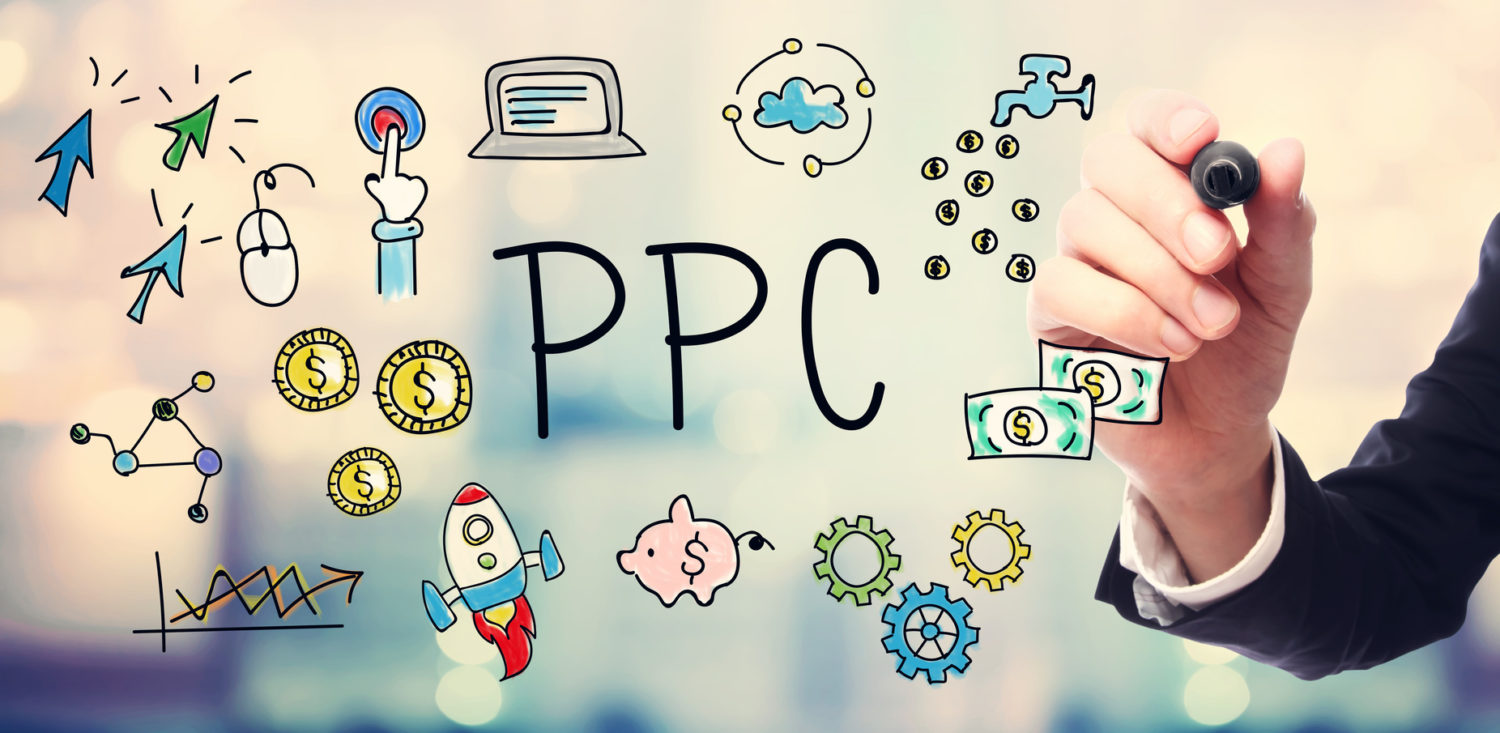
5. Keyword Research for Pay-Per-Click Marketing
Keyword research for PPC can be time-consuming, but it is also incredibly important.
Your entire PPC campaign is built around keywords, and the most successful Google advertisers continuously grow and refine their PPC keyword list (ideally, using a variety of tools, not just Keyword Planner). If you only do keyword research once, when you create your first campaign, you are probably missing out on hundreds of thousands of valuable, long-tail, low-cost and highly relevant keywords that could be driving traffic to your site.
An effective PPC keyword list should be:
1. Relevant: – Of course, you don't want to be paying for Web traffic that has nothing to do with your business. You want to find targeted keywords that will lead to a higher PPC click-through rate, effective cost per click, and increased profits. That means the keywords you bid on should be closely related to the offerings you sell.
2. Exhaustive: - Your keyword research should include not only the most popular and frequently searched terms in your niche, but also to the long tail of search. Long-tail keywords are more specific and less common, but they add up to account for the majority of search-driven traffic. In addition, they are less competitive, and therefore less expensive.
3. Expansive: - PPC is iterative. You want to constantly refine and expand your campaigns, and create an environment in which your keyword list is constantly growing and adapting.
6. Pay-Per-Click Marketing: Using PPC to Build Your Business
What is PPC (pay-per-click) Marketing?
Pay-per-click Marketing is a way of using search engine advertising to generate clicks to your website, rather than “earning” those clicks organically. You know those sponsored ads you often see at the top of Google’s search results page, marked with a yellow label? That’s pay-per-click advertising (specifically Google Ads PPC, which we’ll talk about below).
Here’s how it works: Every time your ad is clicked, sending a visitor to your website, you pay the search engine a small fee. (That’s why it’s called “pay per click.”) When your PPC campaign is well-designed and running smoothly, that fee will be trivial, because the visit is worth more to your business than what you pay for it. For example, if you pay $10 for a click, but the click results in a $300 sale, then using PPC is a no-brainer.
Ultimately, pay-per-click marketing is good for everyone:
1. It’s good for searchers – Research indicates that searchers click on paid search ads more often than any other form of digital advertising. This means that people really don’t mind being advertised to, provided that the products and services advertised actually fit the searcher’s needs. And because we use search engines when we’re looking for products and services, the results, including the ads, are generally highly relevant to what we’re looking for. Plus, Google has developed an excellent formula for ensuring that PPC ads meet the user’s needs.
2. It’s good for advertisers - Advertisers are offered a unique means of putting their message in front of an audience who is actively and specifically seeking out their product. Because searchers reveal their intent through their search query, advertisers are able to measure the quality of traffic that results from search engine clicks.
3. It’s good for search engines – PPC enables search engines to cater to searchers and advertisers simultaneously. The searchers comprise their user-base, while the advertisers provide them with their revenue stream. The engines want to provide relevant results, first and foremost, while offering a highly targeted, revenue-driving advertising channel.
The unique advantage of PPC marketing is that Google (and other ad networks) don’t just reward the highest bidders for that ad space, they reward the highest-quality ads (meaning the ads that are most popular with users). Essentially, Google rewards good performance. The better your ads, the greater your click-through rates and the lower your costs.
Digital Marketing Company in Mumbai includes tactics like SEO, running ads on social media or Pay Per Click Advertising. Your goal here is to capture conversions. When customers see an add you have to make it as appealing as possible so that they click through to your site. The Performance Grader’s expert analysis shows you where and how to make improvements to your AdWords campaign that will improve your performance and save you money.

7. Is Pay-Per-Click Marketing Right for You?
As we’ve established, PPC advertising offers a unique opportunity to:
Grow Your Customer Base - Connect with searchers actively looking for products and services like yours, and respond to that need by providing them with an offer relevant to their search query.
Generate Leads at Low Costs - Because pay-per-click marketing allows you to reach leads and prospects when they’re researching and looking to buy, it’s a highly effective way to bring interested visitors to your site. Plus, you can enjoy an algorithmically generated discount from the search engines in exchange for making their users happy.
The truth is, Pay-Per-Click Marketing can work for almost any kind of business, whether you’re looking to sell products through an e-commerce website, generate leads for a service-based or software business, build brand awareness, or even drive foot traffic and phone calls to your local store.
8. Managing Your Pay-Per-Click Campaigns
Once you've created your new campaigns, you’ll need to manage them regularly to make sure they continue to be effective. In fact, regular account activity is one of the best predictors of account success. You should be continuously analyzing the performance of your account and making the following adjustments to optimize your campaigns:
Add PPC Keywords: Expand the reach of your PPC campaigns by adding keywords that are relevant to your business.
Add Negative Keywords: Add non-converting terms as negative keywords to improve campaign relevancy and reduce wasted spend.
Split Ad Groups: Improve click-through rate (CTR) and Quality Score by splitting up your ad groups into smaller, more relevant ad groups, which help you create more targeted ad text and landing pages.
Review Costly PPC Keywords: Review expensive, under-performing keywords and shut them off if necessary.
Refine Landing Pages: Modify the content and calls-to-action (CTAs) of your landing pages to align with individual search queries in order to boost conversion rates. Don’t send all your traffic to the same page.
You’ll learn more about all of these elements of PPC campaign management as you move forward through the coursework in moPharma. moPharma Digital Solution is a Digital Marketing Agency in Mumbai that runs remarkably Successful PPC campaigns in the most competitive sectors, using a unique blend of technical and creative expertise.
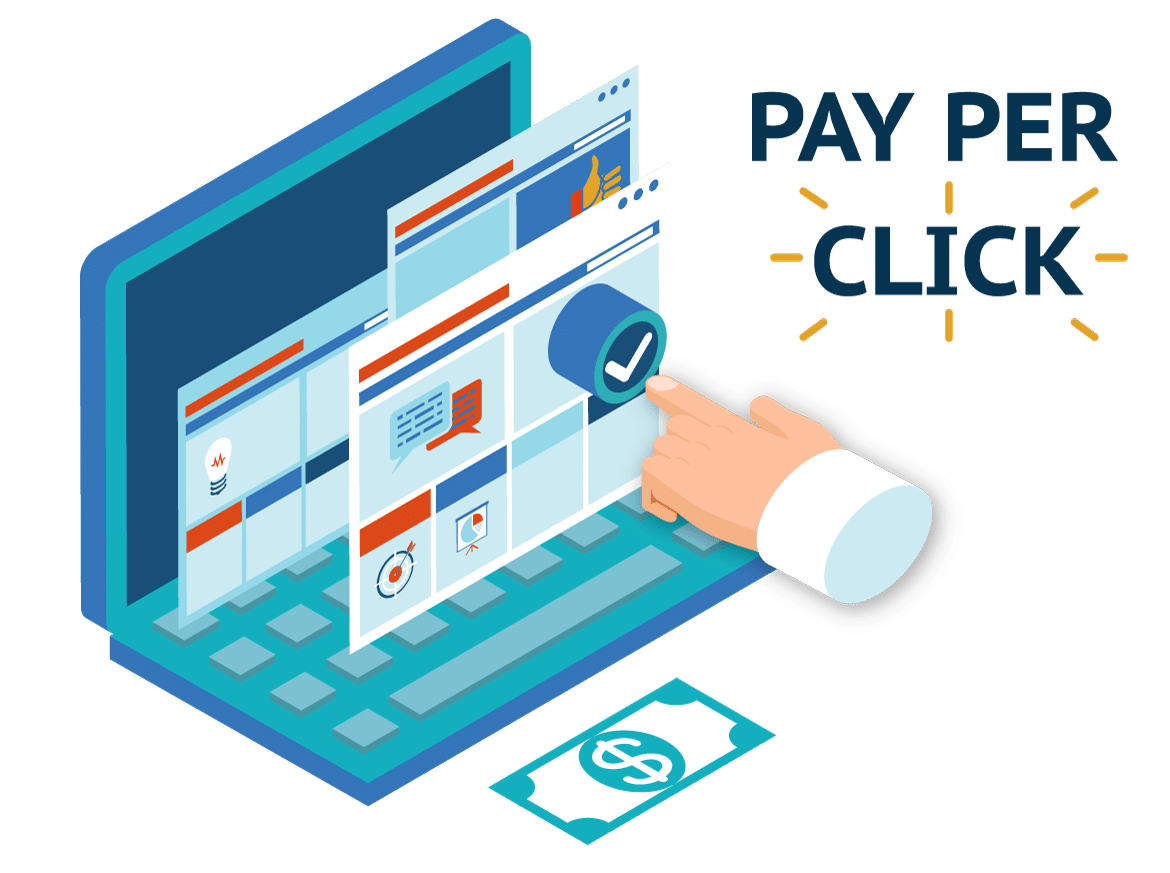
Learn Digital Marketing Courses
By now, I believe, that you have a fair idea why Digital Marketing is important for pharma sector. Some pharma companies have not yet fully embraced the digital revolution and changing times, while others have. Well, you should understand that it doesn’t matter to the patients out there, the patients are increasingly expecting, and rightly so, and demanding the pharma and healthcare industry to engage themselves and provide end-to-end services.
The pharma companies that are aligned to changing times, and are using digital mediums, are also the ones reaping the benefits. Big prizes are waiting for those who can cut through all the digital noise and come-up with sustained competitive advantage using digital mediums. The others will also align soon or go out of business.
There are different ways to learn digital marketing. You can teach yourself using online material and tutorials, or you can Learn Digital Marketing from a Reputed Training Institute. These training institutes have highly experienced professionals and provide you focused and personalized training with lot of live assignments, and also provide you guidance for your placements. There are digital marketing courses specialized specifically for pharma sector.
So, go ahead, learn Digital Marketing and shine on!
Remember…
-Pharma must be in the conversation so to know how to develop better drugs.
-Digital marketing offers many ways to communicate with customers (HCPs and patients).
-Pharma must offer great content that interests customers and helps them do their jobs better. This type of content is easier to approve, less risky and leads to better long-term customer loyalty.
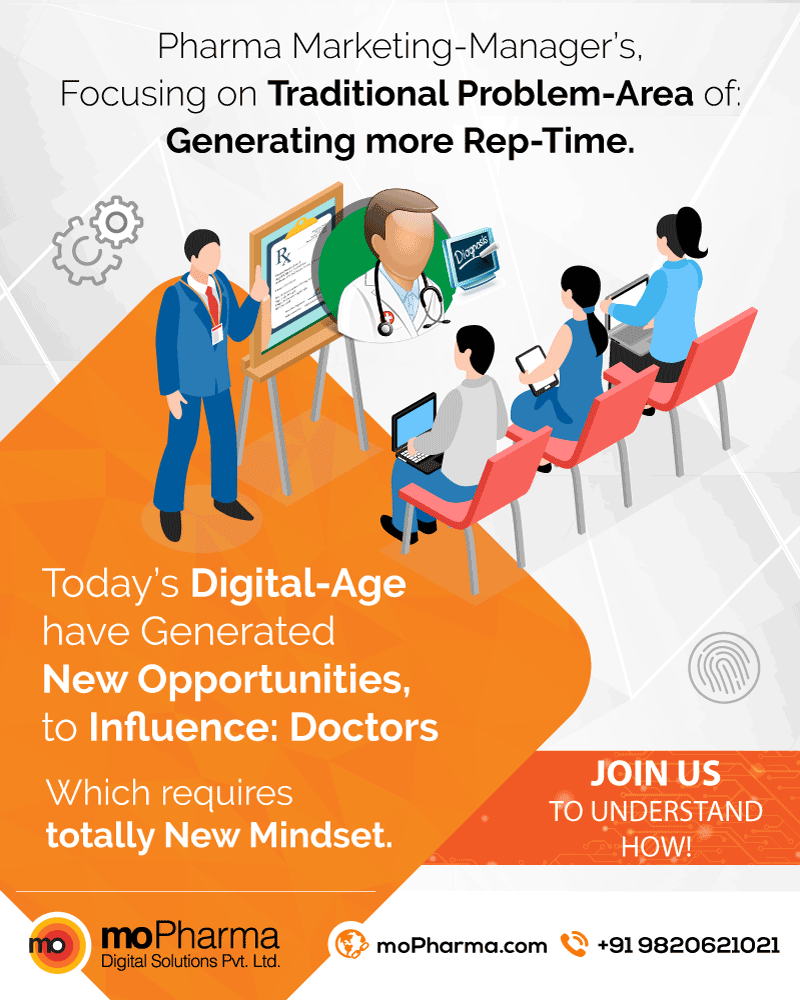
Digital Marketing Corporate Training
Corporate training has evolved rapidly in recent years. It is one of the most significant parts of its growth and long-term investment strategies. It helps to improve employees performance, moral and skills by concentrating on professional development. Corporate Training is the key to ensure development in all the spheres; so that the employees can aspire in this competetive world and bring success on their behalf. Through Corporate Training highest productivity can be achieved when the individual goals are integrated with the organisational goals.
The scope of digital marketing is growing day-by-day. Companies are also focusing on digital marketing. Providing a Corporate Training on digital marketing will help the emlpoyees to boost up their productivity in the organization. It does not restrict you to one specific job profile. Getting a digital marketing training in an organization will help you to get better salary as this is the most fascinating advantage of digital marketing. It will help in making suitable modification whenever necessary. Training in digital marketing helps in creating better understanding of the companies and the employees are able to achieve their professional goals.
Please Share.. if you Like
Digital Marketing: Corporate Training Ajit: +91 9820621021 moPharma Leading Digital Marketing Agency for Pharma SEO, SEM, SMO, SMM, eMail Marketing, etc. Esteem Happy Clients:
Hindusatan Unilever, Abbott, MSD, AZ, Lupin, GSK, Lodha, Mumbai Police, Siemens and many more...
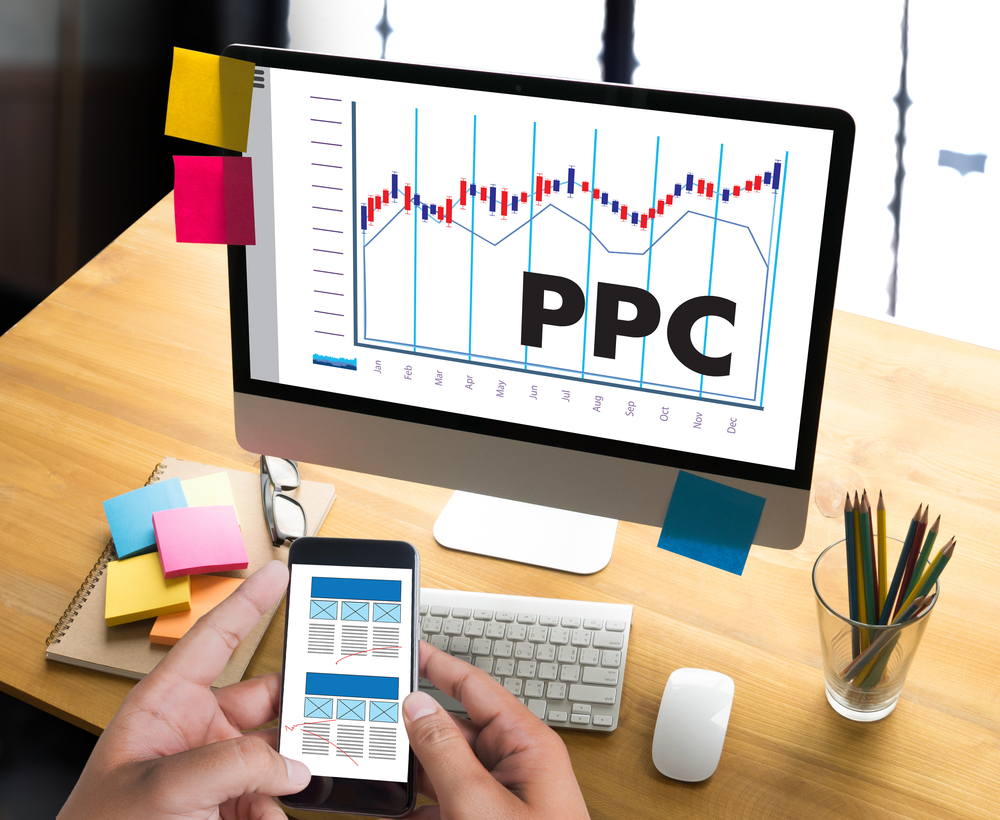
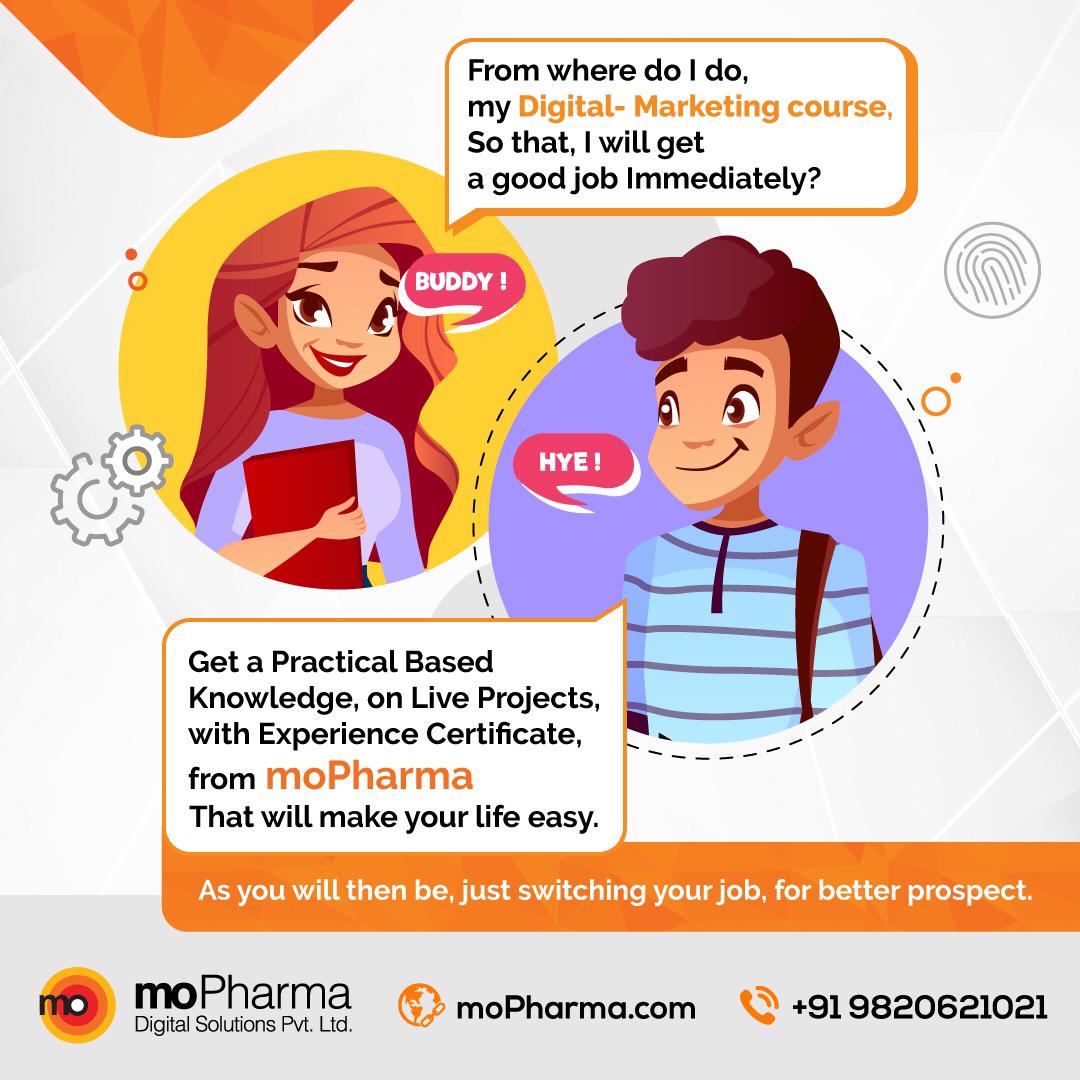



Discuss about post